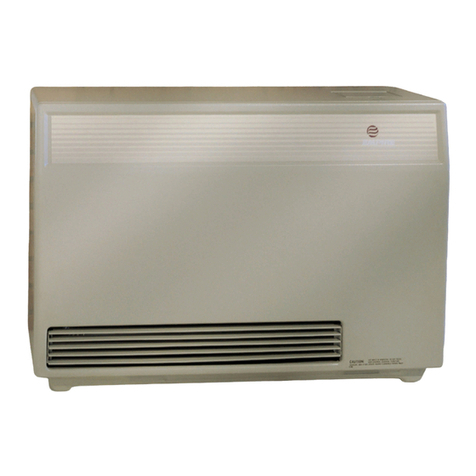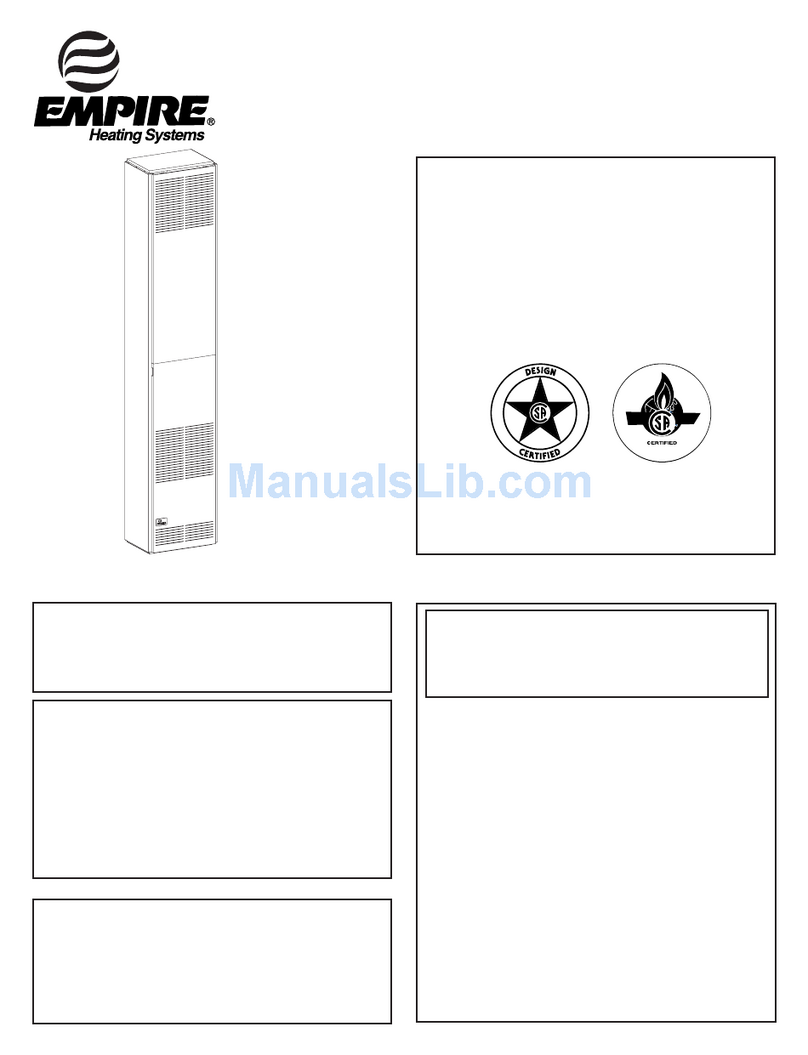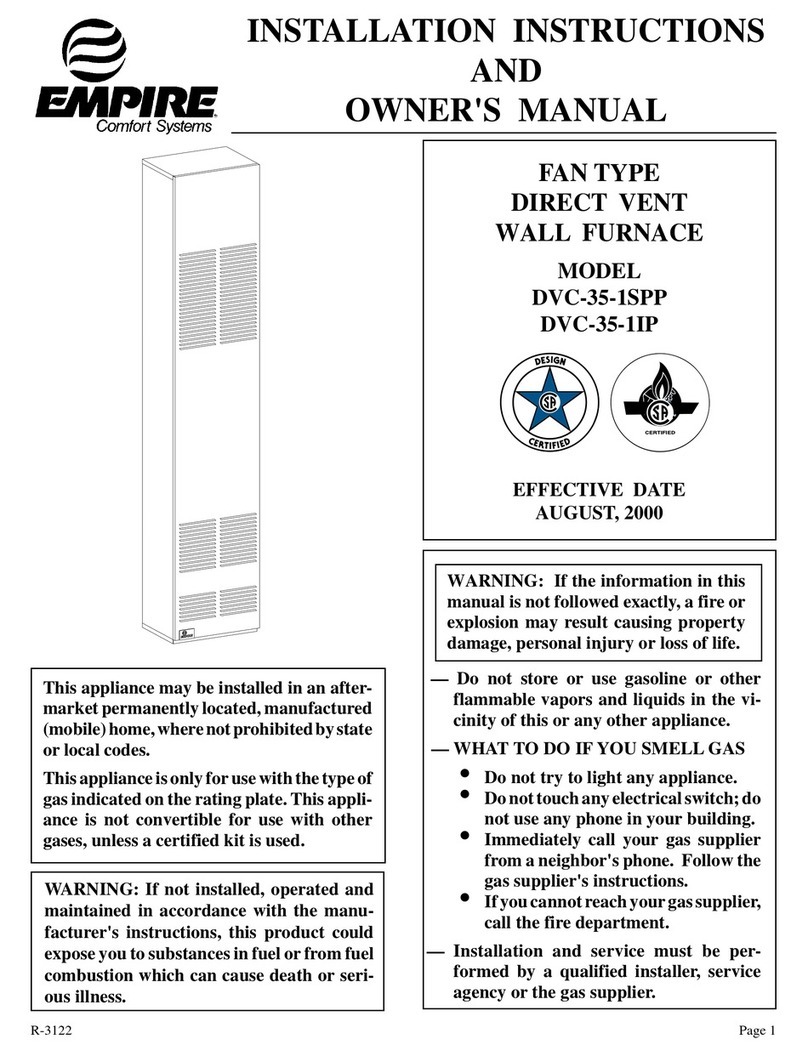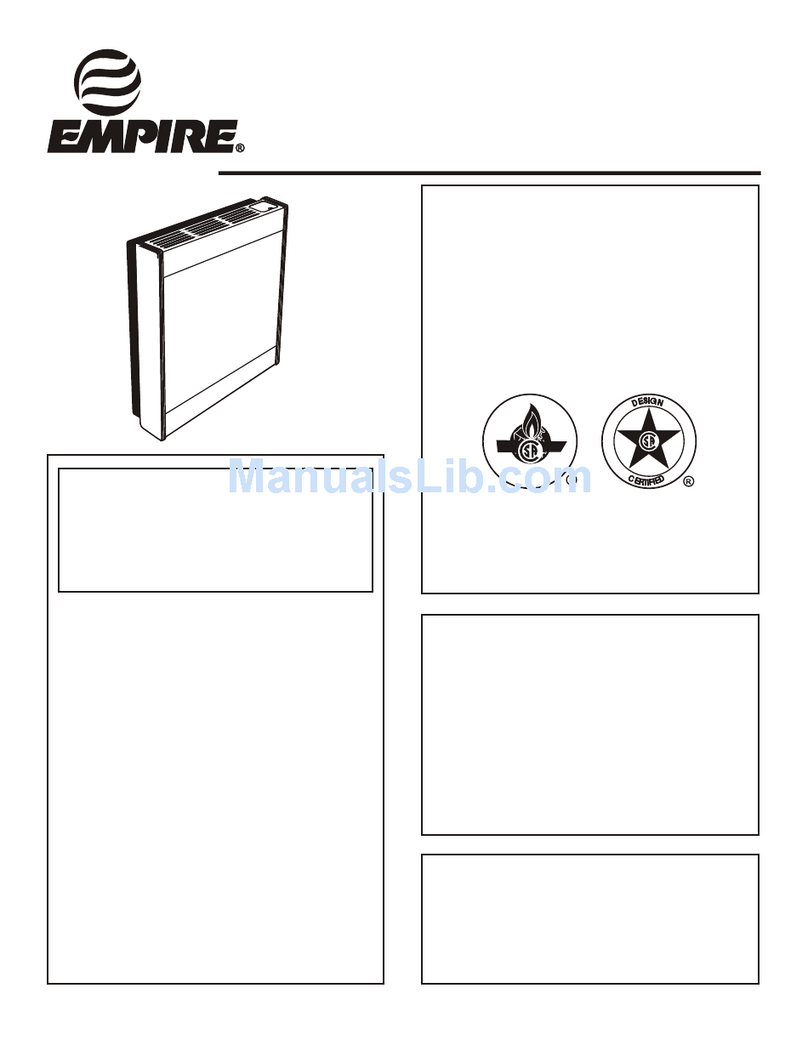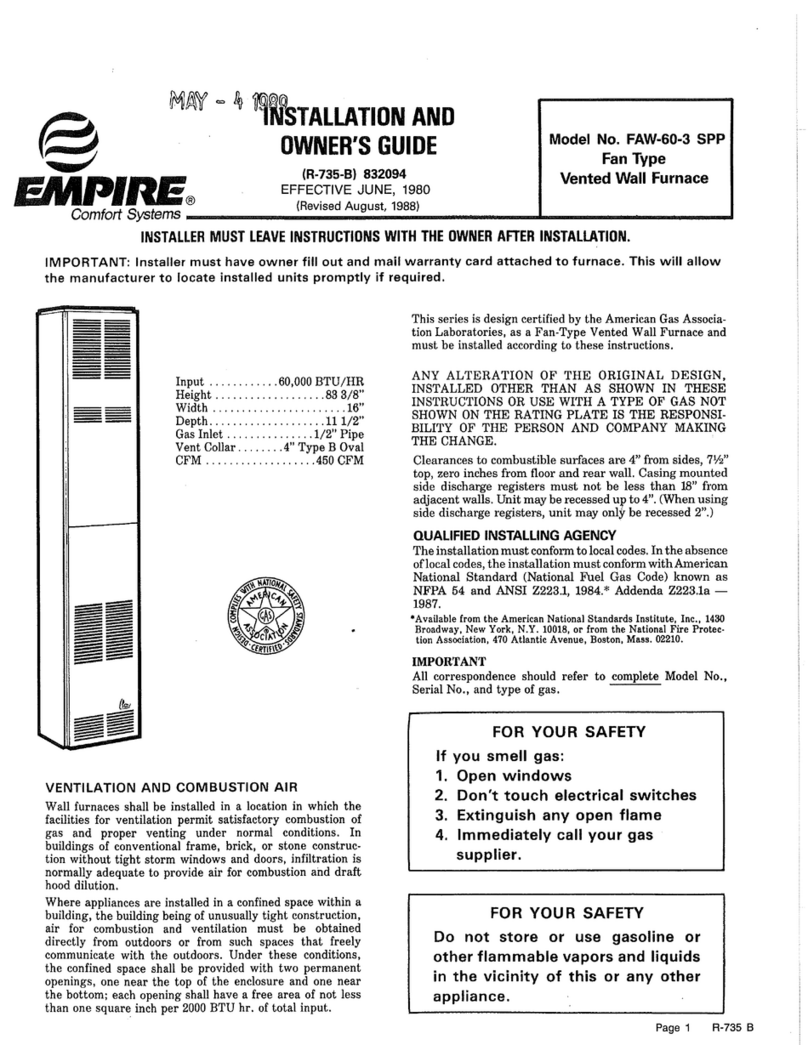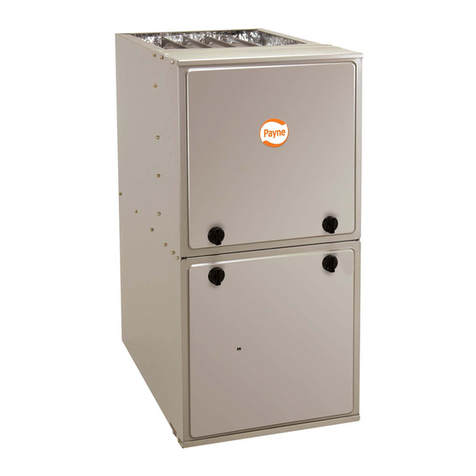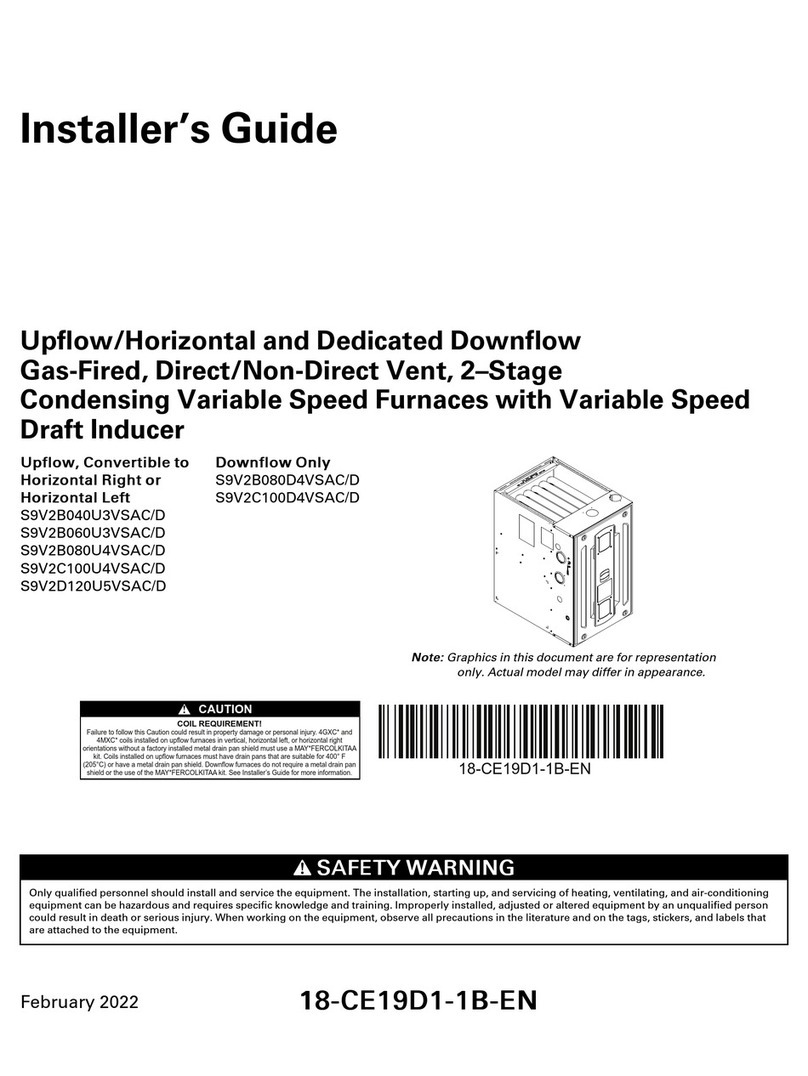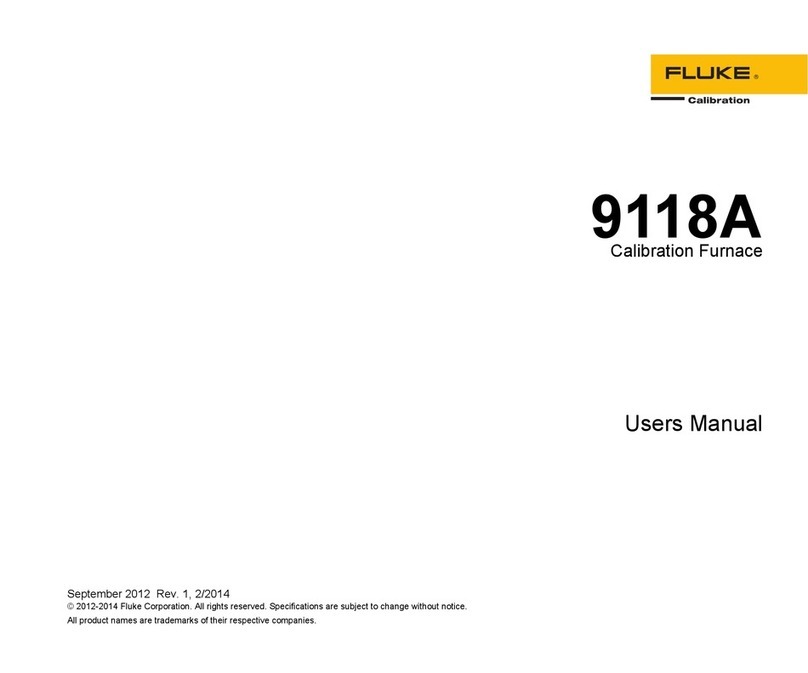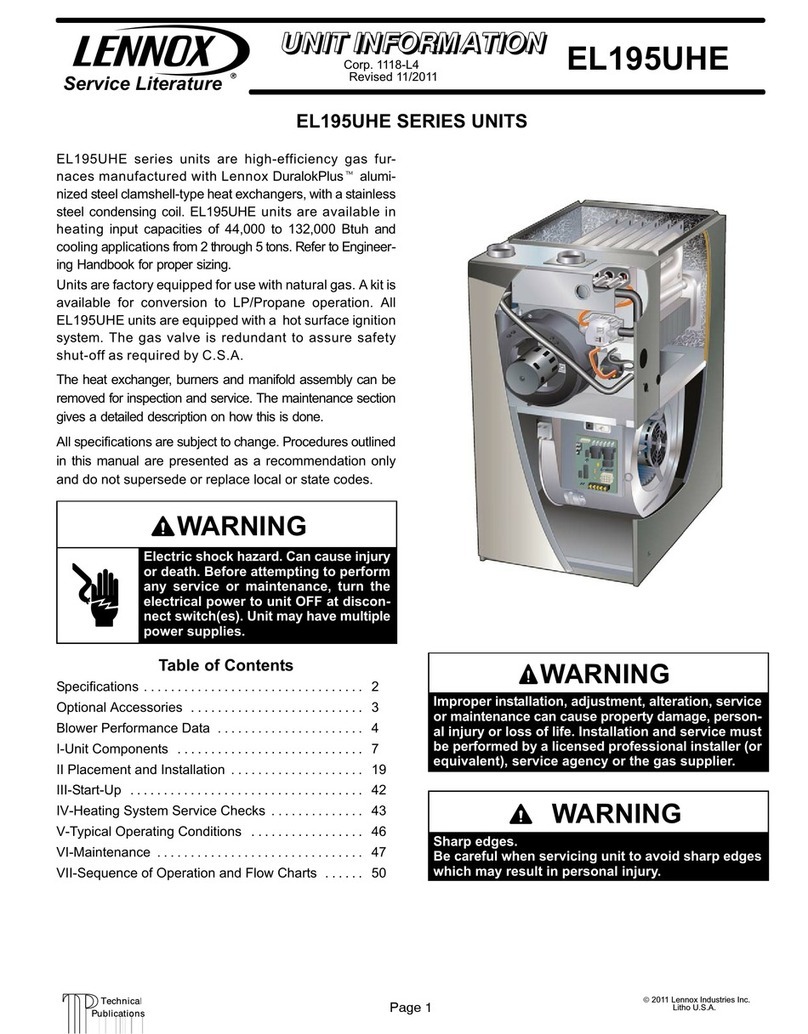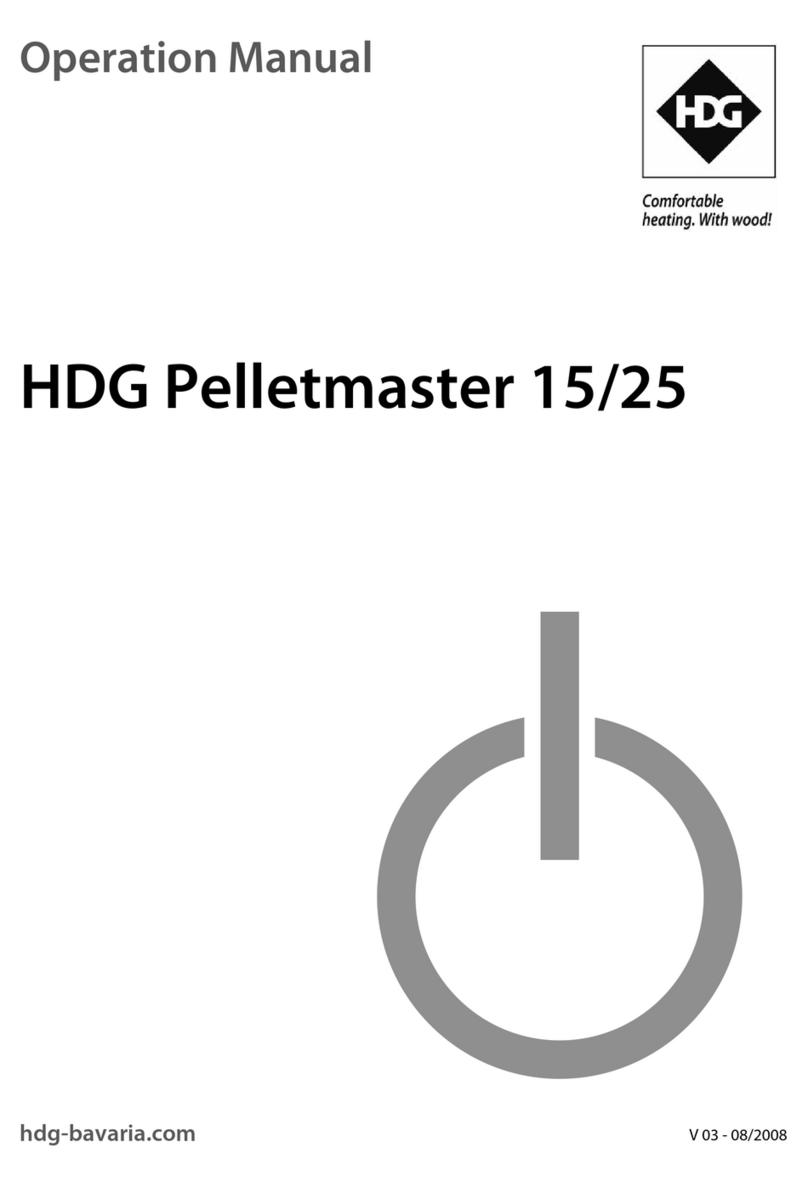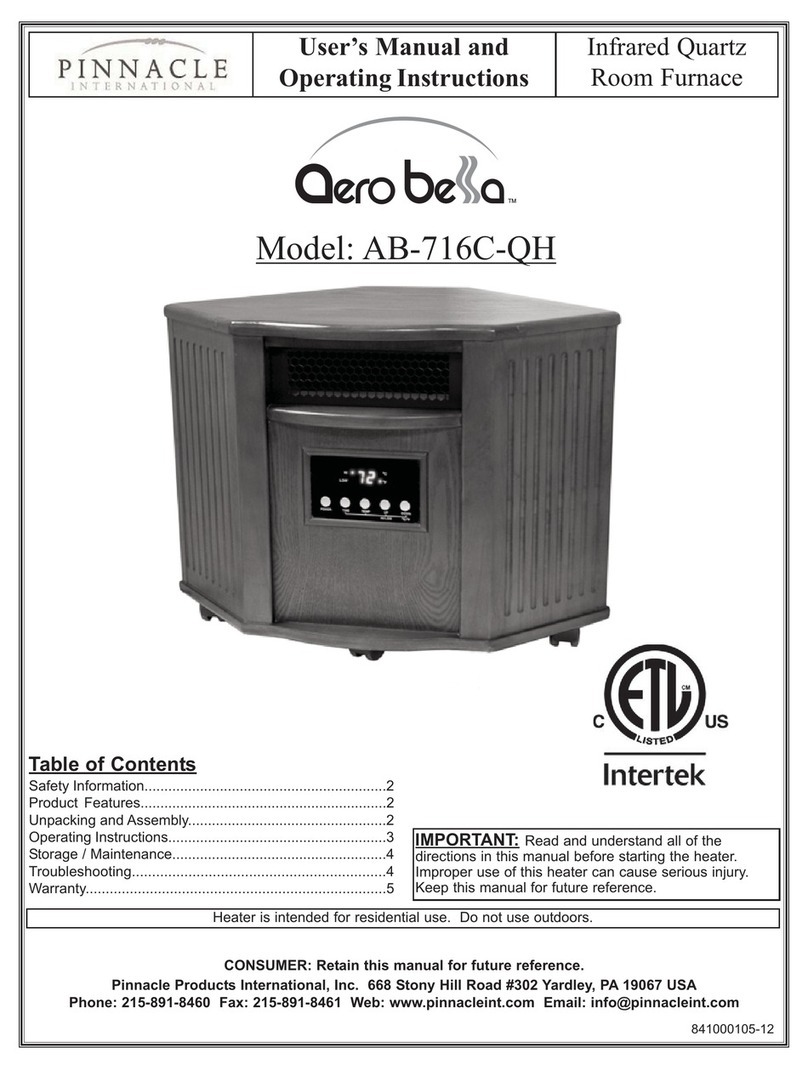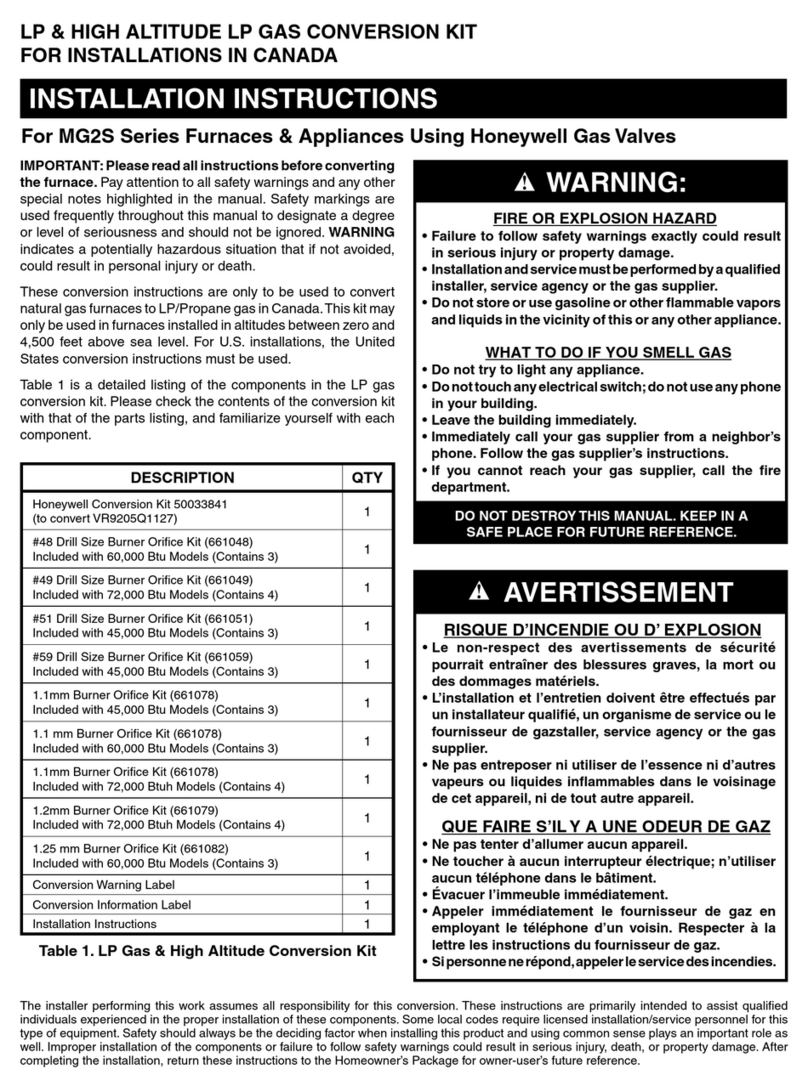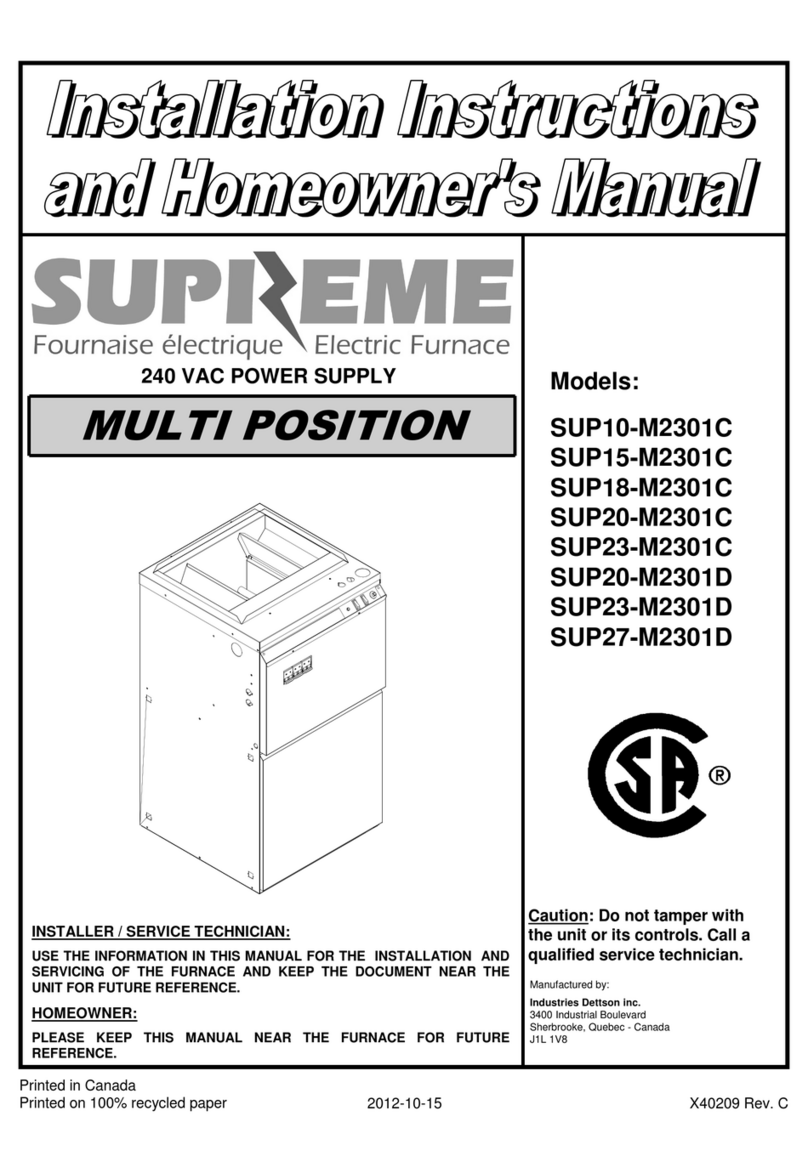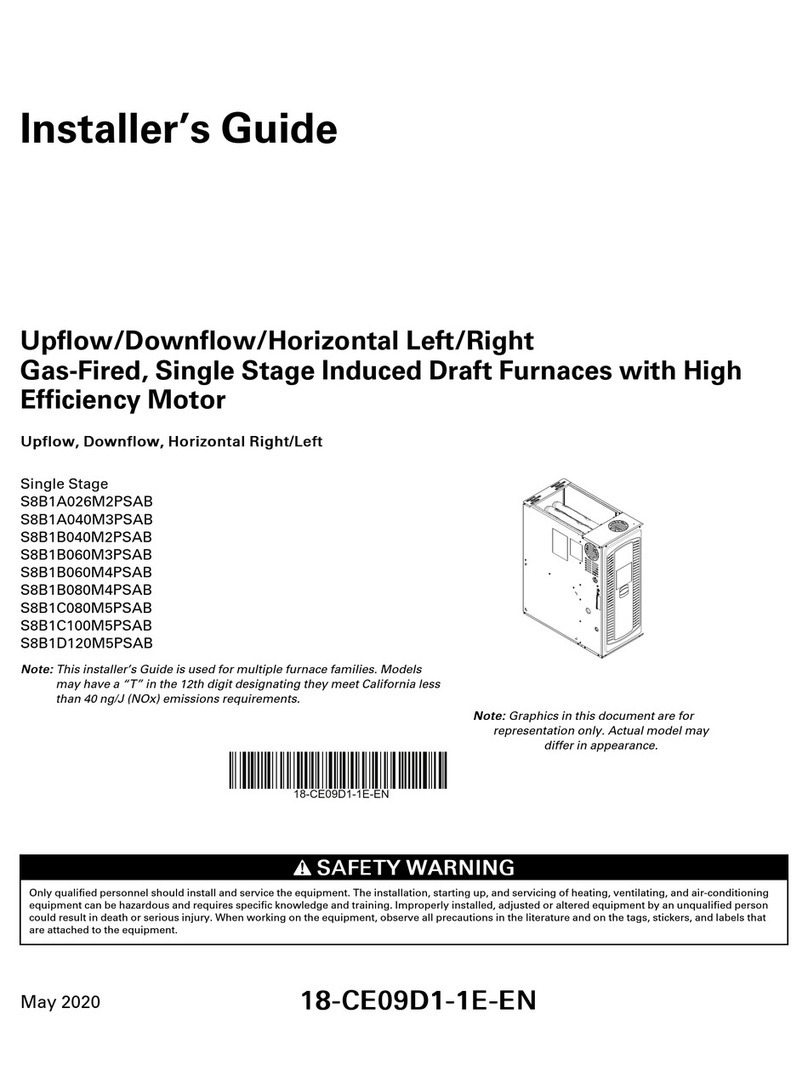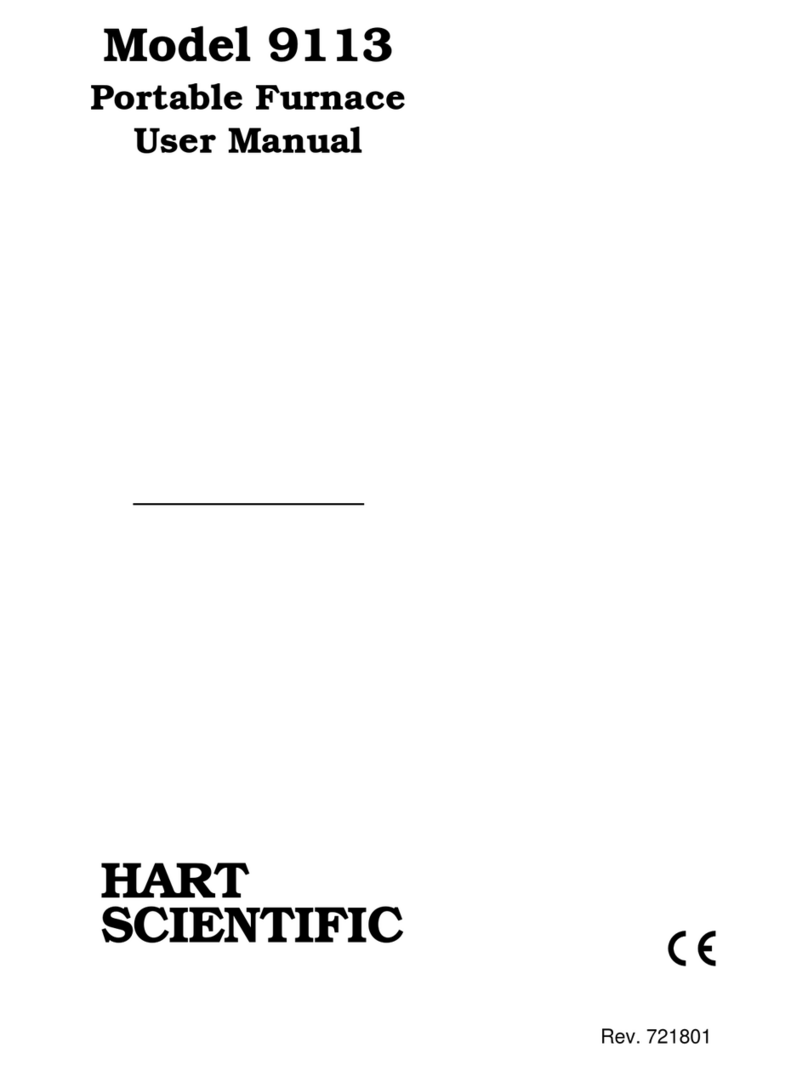
R-1842 Page 3
Somepeoplecannotsmellwell.Somepeoplecannotsmellthe
odor of the chemical stench put into the gas. You must find
out if you can smell the odorant in propane. Smoking can
decrease your ability to smell. Being around an odor for a time
can affect your sensitivity or ability to detect that odor. Some-
times other odors in the area mask the gas odor. People may not
smellthegasodorortheirmindsareonsomethingelse.Thinking
about smelling a gas odor can make it easier to smell.
The odorant in LP-gas is colorless, and it can fade under
some circumstances. For example, if there is an underground
leak,the movementofthegasthrough soilcanfilterthe odorant.
OdorantsinLP-Gasalsoaresubjecttooxidation.Thisfadingcan
by point with the members of your household. Someday
whentheremaynotbeaminutetolose,everyone'ssafetywill
depend on knowing exactly what to do. If, after reading the
followinginformation, youfeelyou stillneedmore informa-
tion, please contact your gas supplier.
Propane (LP-Gas) is a flammable gas which can cause fires
and explosions. In its natural state, propane is odorless and
colorless.Youmay not knowall thefollowing safety precau-
tions which can protect both you and your family from an
accident. Read them carefully now, then review them point
occur if there is rust inside the storage tank or in iron gas pipes.
The odorant in escaped gas can adsorb or absorb onto or into
walls, masonry and other materials and fabrics in a room. That
will take some of the odorant out of the gas, reducing its odor
intensity.
LP-Gasmaystratifyinaclosedarea,andtheodorintensitycould
vary at different levels. Since it is heavier than air, there may be
more odor at lower levels. Always be sensitive to the slightest
gas odor. If you detect any odor, treat it as a serious leak.
Immediately go into action as instructed earlier.
•Learnto recognizethe odorof LP-gas.Your local LP-Gas
Dealercangiveyoua "ScratchandSniff"pamphlet.Useitto
findoutwhatthepropaneodorsmellslike.Ifyoususpectthat
yourLP-Gas has aweak orabnormalodor, call yourLP-Gas
Dealer.
• If you are not qualified, do not light pilot lights, perform
service, or make adjustments to appliances on the LP-Gas
system.Ifyouarequalified,consciouslythinkabouttheodor
ofLP-Gas prior to andwhile lightingpilot lights orperform-
ing service or making adjustments.
• Sometimes a basement or a closed-up house has a musty
smell that can cover up the LP-Gas odor. Do not try to light
pilot lights, perform service, or make adjustments in an area
where the conditions are such that you may not detect the
odor if there has been a leak of LP-Gas.
• Odor fade, due to oxidation by rust or adsorption on walls of
new cylinders and tanks, is possible. Therefore, people
should be particularly alert and careful when new tanks or
cylinders are placed in service. Odor fade can occur in new
tanks, or reinstalled old tanks, if they are filled and allowed
to set too long before refilling. Cylinders and tanks which
have been out of service for a time may develop internal rust
which will cause odor fade. If such conditions are suspected
to exist, a periodic sniff test of the gas is advisable. If you
have any question about the gas odor, call your LP-gas
dealer. A periodic sniff test of the LP-gas is a good safety
measure under any condition.
• If, at any time, you do not smell the LP-Gas odorant and you
thinkyoushould,assumeyouhavealeak.Thentakethesame
immediateactionrecommendedabovefortheoccasionwhen
you do detect the odorized LP-Gas.
• If you experience a complete "gas out," (the container is
under no vapor pressure), turn the tank valve off immedi-
ately.Ifthecontainervalveislefton,thecontainermaydraw
in some air through openings such as pilot light orifices. If
this occurs, some new internal rusting could occur. If the
valve is left open, then treat the container as a new tank.
Always be sure your container is under vapor pressure by
turningitoffatthecontainerbeforeitgoescompletelyempty
or having it refilled before it is completely empty.
SAFETY INFORMATION FOR USERS OF LP-GAS
• Do not operate electric switches, light matches, use your
phone. Do not do anything that could ignite the gas.
• Geteveryoneoutofthe building,vehicle,trailer,orarea.Do
that IMMEDIATELY.
• Close all gas tank or cylinder supply valves.
• LP-Gas is heavier than air and may settle in low areas such
as basements. When you have reason to suspect a gas leak,
keep out of basements and other low areas. Stay out until
firefighters declare them to be safe.
• Useyourneighbor'sphoneandcallatrainedLP-Gasservice
person and the fire department. Even though you may not
continuetosmellgas,donotturnonthegasagain.Donotre-
enter the building, vehicle, trailer, or area.
•Finally, let the service man and firefighters check for
escaped gas. Have them air out the area before you return.
Properly trained LP-Gas service people should repair the
leak, then check and relight the gas appliance for you.
SOME POINTS TO REMEMBER
NO ODOR DETECTED - ODOR FADE
LP-GAS WARNING ODOR
If a gas leak happens, you should be able to smell the gas because of the odorant put in the LP-Gas.
That's your signal to go into immediate action!
